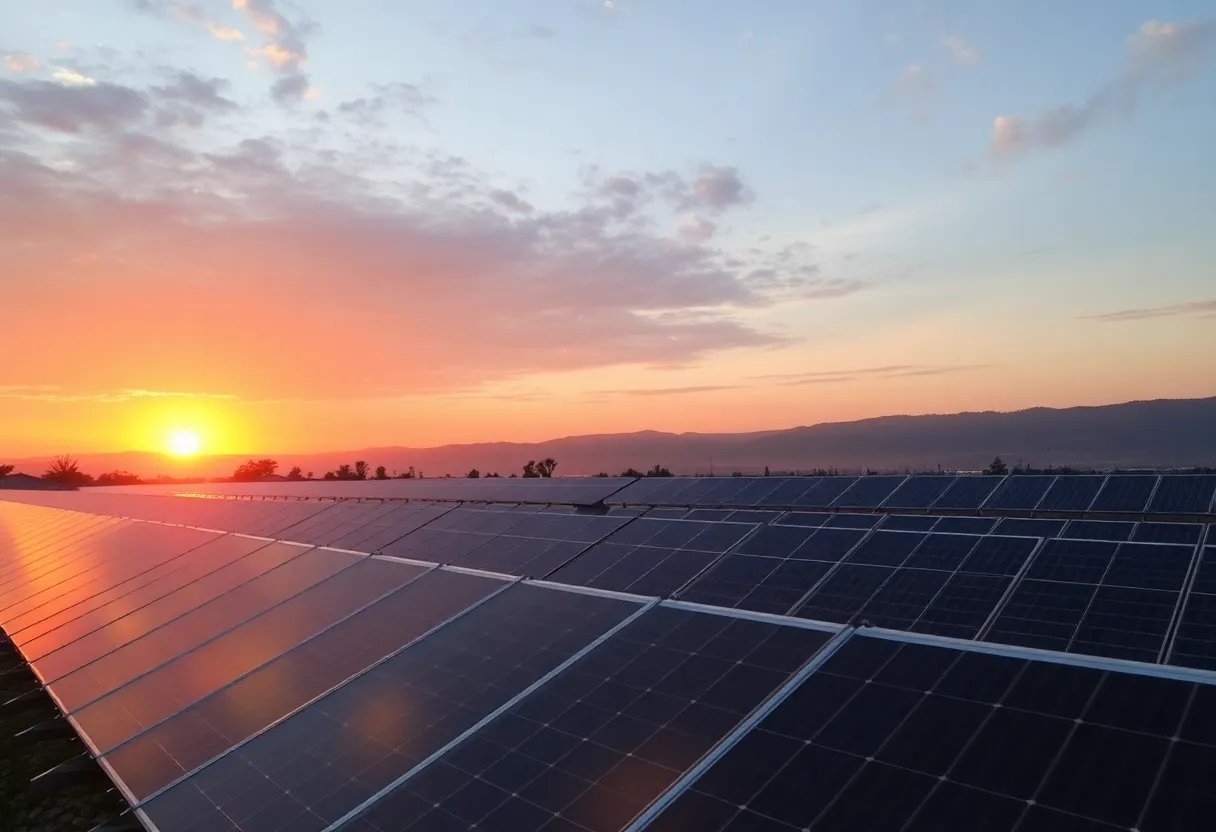News Summary
California’s Assembly Bill 942, initially aimed at reforming rooftop solar incentives, has been significantly amended to focus on consumer access to carbon credits. The revisions came after public backlash from solar advocates. The bill now intends to reduce electricity costs for more Californians while addressing long-standing subsidies that disproportionately affect non-solar customers. Critics remain concerned about property value impacts for existing solar system owners. The bill’s future lies with the Senate Appropriations Committee, amid ongoing scrutiny of its legislative motivations and implications for the state’s energy landscape.
California has seen significant changes to Assembly Bill 942, a piece of legislation originally designed to reform rooftop solar incentives amid rising public discontent. The bill, authored by Assemblymember Lisa Calderon, has undergone major amendments, effectively eliminating all references to rooftop solar and redirecting its focus towards consumer access to carbon credits.
Initially, AB 942 proposed that new property owners with existing rooftop solar systems transition to a lower net metering tariff. This would have impacted the financial agreements established by previous owners, thus creating a potential financial burden for those seeking to invest in solar energy. However, during a Senate Energy, Utilities and Communications Committee meeting on July 15, the bill was reworked in light of public feedback, preserving protections for rooftop solar owners.
The revisions came after considerable pushback from solar advocates and activists, who protested against the bill’s original language. Their efforts were crucial, leading many to withdraw their opposition to the amended version of the bill. This public pressure was recognized by environmental groups, including the Environmental Working Group, whose representatives noted the effectiveness of grassroots opposition in shaping legislative outcomes.
Calderon defended the newly amended bill, asserting that the current direction focuses on reducing electricity costs for the majority of California residents. Critics of the initial proposal argued that the alterations to solar subsidies could lead to depreciation in property values for homeowners invested in solar solutions.
The future of AB 942 now rests with the Senate Appropriations Committee, where it could face further amendments or be stalled altogether. Solar advocates are continuing to keep a close watch on other related legislation, such as SB 710, which may introduce additional benefits for solar installations in the state.
The backdrop of this legislation reveals a long-standing debate regarding the economic implications of state-sponsored solar subsidies. An analysis of past legislative measures indicated that as these subsidies expanded since the mid-1990s to encourage clean energy usage, they inadvertently placed an increasing financial burden on non-solar customers. Last year alone, the cost shift associated with these policies was estimated to exceed $8.5 billion, impacting roughly 10 million residents who do not have solar systems of their own.
Supporters of solar energy argue that significant disparities exist between solar and non-solar customers due to these financial dynamics. As a response, Calderon’s bill aims to tackle long-term affordability issues for all energy consumers in California, rather than solely benefiting homeowners who have adopted solar technology.
Moreover, Calderon has faced scrutiny for her previous association with Southern California Edison, which has raised questions among critics regarding her motivations in sponsoring the legislation. These concerns have added a layer of complexity to the already contentious atmosphere surrounding solar energy policy in the state.
As the legislative process for AB 942 continues, the conversation around rooftop solar is expected to persevere, with advocates looking for ways to protect their interests against further regulatory changes. The outcome of this bill, along with others in the pipeline, will likely have lasting implications on California’s energy landscape, particularly for those involved in the solar energy sector.
Deeper Dive: News & Info About This Topic
- Sacramento Bee: Opinion on AB 942
- KTVU: California Bill Could Slash Rooftop Solar Credits
- ABC10: Solar Owners Protest Bill
- Mercury News: Controversial Solar Bill Advances
- Wikipedia: Rooftop Solar

Author: STAFF HERE SAN DIEGO WRITER
The SAN DIEGO STAFF WRITER represents the experienced team at HERESanDiego.com, your go-to source for actionable local news and information in San Diego, San Diego County, and beyond. Specializing in "news you can use," we cover essential topics like product reviews for personal and business needs, local business directories, politics, real estate trends, neighborhood insights, and state news affecting the area—with deep expertise drawn from years of dedicated reporting and strong community input, including local press releases and business updates. We deliver top reporting on high-value events such as Comic-Con International, San Diego County Fair, and San Diego Pride Festival. Our coverage extends to key organizations like the San Diego Regional Chamber of Commerce and United Way of San Diego County, plus leading businesses in biotechnology, healthcare, and technology that power the local economy such as Qualcomm, Illumina, and Scripps Health. As part of the broader HERE network, including HEREAnaheim.com, HEREBeverlyHills.com, HERECostaMesa.com, HERECoronado.com, HEREHollywood.com, HEREHuntingtonBeach.com, HERELongBeach.com, HERELosAngeles.com, HEREMissionViejo.com, and HERESantaAna.com, we provide comprehensive, credible insights into California's dynamic landscape.


